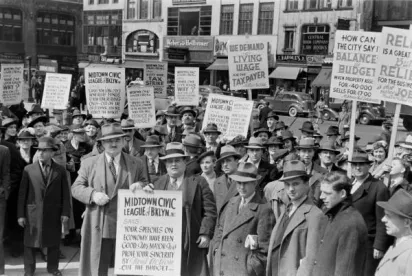The House passed the Protecting the Right to Organize Act (PRO Act) in February 2020. Reminiscent of the ill-fated Employee Free Choice Act of 2008, the PRO Act would completely revamp American labor law by amending the National Labor Relations Act (NLRA) in many ways. Construction employers, even unionized employers, find its provisions harsh.
Among the myriad amendments to the NLRA, the PRO Act would:
-
Reduce employers’ input into National Labor Relations Board bargaining unit and election determinations
-
Ban employer mandatory “captive audience” group meetings
-
Mandate immediate collective bargaining for 90 days and, if no agreement is reached, require binding interest arbitration of contract terms, allowing the arbitrator to decide based on the company’s ability to pay and its competitors’ practices (among other considerations)
-
Ban employer lockouts and the permanent replacement of strikers while allowing intermittent strikes
-
Preempt states’ “right to work” laws
-
Allow “unfair labor practice” claims to be brought as civil actions in court
-
Add fines and liquidated damages (into the six figures) as remedies for unfair labor practices, and add personal liability on corporate directors and officers
-
Raise the threshold for finding supervisory status under the law
-
Lower the threshold for finding contracting companies and franchisors to be “joint employers”
-
Turn most independent contractors into “employees”
-
Bar class action arbitration waivers
Not surprisingly, non-union construction employers oppose this legislation. Unionized employers, who might otherwise welcome increased overall unionization as a “leveling of the playing field,” are skeptical.
Construction employers who are signatory to area union contracts commonly enjoy the stability and certainty of having identical labor costs and work rules. They have learned to compete in the market on those terms. Under the PRO Act, these area contracts would no longer be the “standard.” Newly organized employers would be subject to the NLRA’s arbitrator-imposed terms, which would not be premised on the area union contract.
Further, a union may file a charge against a signatory employer for bad faith bargaining or some other violation of the contract, which may mean potential fines and penalties against the company’s owners and officers. Non-union employers, who do not have a union contract or a legal obligation to bargain, would not face that possibility.
The PRO Act also would eliminate current restrictions on “secondary picketing.” This would allow unions to picket contractors on their jobsites, and effectively prevent their unionized employees from working, causing disruption not only to the company, but the entire site. Non-union contractors would not be prevented from continuing operations.
The Senate has not yet acted on the bill. President Donald Trump has signaled that he would veto it.




 />i
/>i

